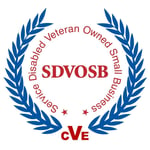Transforming an organization begins with a desire to improve.
It requires discarding past failures as you travel on the path to organizational transformation. Ownership and accountability begin with the leadership team, and the desire to improve and perform at high levels filters down as the culture of leadership permeates every part of your workforce. Workers feel empowered, are confident in their abilities, and strive to meet common goals and objectives.
The Role of Culture in High-Reliability Organizations
“Culture eats strategy for breakfast,” a quote accredited to Peter Drucker argues that strategy is theoretical where culture determines how things get done. Formulating a meaningful strategy is simple, but building a high-performing culture is hard. An inspired strategy without a great culture is meaningless while a resilient culture can succeed even if its strategy is unexceptional. Plus, it is much easier to change strategy culture.
A countering argument is that culture simply enables strategy. In application, both are important, interdependent, and self-perpetuating. There are practical and measurable ways that leaders can shape culture and its impact on operations. Culture is a set of shared values, norms, and perceptions that inform expectations, assumptions, and decision-making, which can be good or bad. Culture can also magnify blind spots.
Generally, High-Reliability Organizations (HRO) acknowledge the existence of subcultures within the large organizational culture. Even though these subcultures may be in varying degrees of conflict, they are more adaptable to ambiguity through variety and diversity. By understanding these subgroup value systems and the interactions between them, leaders can profoundly shape culture and performance.
Organizations often develop a “get it done” or a “can do” approach to operations. This operating mindset is likely a product of past growth and innovation periods reinforced by otherwise successful and productive operations by an experienced workforce. While these cultures are results-oriented and are driven by a deep desire to do what seems right, this can easily lead to failure by people that are unarmed with either the information or the training to make good decisions.
Another common cultural value is trust. Coworkers in organizations tend to trust one another implicitly and for good reason. But this can lead to serious repercussions: if directing a peer is seen as mistrusting the peer’s competence, neither coworker is understood to have the lead which begs the question of who is really in charge.
Competency-based training and assurance programs are an effective approach towards ensuring workforce competency, standardizing processes, and communicating objectives and expectations across an organization. Competency assurance programs to deliver and manage individual and technical behavioral competencies are established at the organizational level.
Done well, programs to identify, define, assess, remediate, develop, and manage the continuing competence of personnel realize direct and indirect benefits. Among these are increased productivity, improved personnel, and environmental safety, enhanced organizational learning, and higher morale and retention.
Most organizations fall short by not completing the final (and most meaningful) step from training management to competency assurance. Competence cannot be inferred from training alone, even more so from knowledge without context. While training programs aim to deliver knowledge, skills, and attitudes required to perform a job, competence is the recognizable act of performing a task successfully. More importantly, competence cannot be inferred from experience. While experience is an important component of developing competence, experience in and of itself does not translate to competence.
An effective competency assurance program utilizes formal systems, tools, and processes to ensure personnel is competent to complete assigned tasks to an expected standard. Competency-based training instills confidence and creates a more permissive environment and a measured need for more assertiveness. When skills are based on experience, younger, less experienced workers tend to defer to the more tenured workers to validate their work and withhold otherwise valuable perspectives.
Procedure Modernization
A common outcome of an incident investigation is to find that employees are not following procedures. This could occur for several reasons. In the BP Texas City explosion, it was found that operators consciously deviated from startup procedures because they were thought to be out of date. In the chemical manufacturing plant incident, technicians knew they were not following the sequence outlined in the procedure, but they felt they were doing what made sense at the time. Shared habit patterns and a history of no negative consequences (yet) naturally reinforce bad habits. Eventually, statistics catch up, and bad habits surface as glaringly poor decisions, sometimes with dire consequences.
Procedure modernization programs can drive a broad improvement in your organization and further efforts to attain systemic reliability. Procedure modernization uses industry-standard templates to identify, document, and input each procedural step. Each statement describes an expected system response, shows how to determine if a step or task has been done properly, and details potential consequences associated with errors and omissions. Procedure statements are written using standard terminology to provide clear, concise instructions supplemented by relevant pictures and diagrams.
Clear, dependable work standards provide the foundation for systemic reliability of assets, processes, and people. Well-defined work standards bridge the gap between organizational core competence and results. Equipment manuals, technical practices, and standard procedures outlining operating modes, specifications, and limits provide the source for managing risk, assuring competence, recording compliance, and establishing organizational learning.
Putting it all Together for Enduring Change
Practical and measurable progress towards achieving operational resilience and human reliability is achieved through a systematic and quantifiable institutional method that acknowledges the influence of human factors. Success is realized when competent people are given clear tasking to operate proper equipment in a controlled environment while being provided with accurate information and directed by effective leadership and supervision. Operational resiliency is the product of managed risk of human error. Resilient operational performance illustrates the aim of finding the balance between safety and productivity.
The principles we practice at Vetergy Group draw on the experience and best practices from military and commercial aviation, special operations, Navy nuclear power and propulsion, NASA, and oil & natural gas exploration. We employ a set of defined steps to introduce or improve resilience in the culture and operations of high-reliability organizations. Our programs deliver a top-down institutionalization of culture that produces a bottom-up emergence of resilience.
Click HERE to learn more about how to start your journey to resilience.



 1200 Corporate Drive, Ste 170
1200 Corporate Drive, Ste 170




